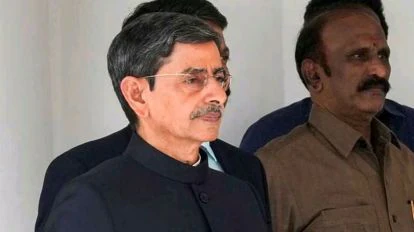Published on: April 8, 2025
In a landmark judgment, the Supreme Court of India has ruled that the Tamil Nadu Governor’s act of withholding assent to 10 bills passed by the state legislature was “illegal and erroneous.” The verdict marks a significant moment in the ongoing debate about the role of Governors in India’s federal structure and the importance of maintaining democratic conventions.
Background of the Case
The case arose after the Tamil Nadu government, led by the DMK, filed a petition in the Supreme Court accusing Governor R.N. Ravi of stalling governance by withholding assent to a series of bills passed by the legislative assembly. Some of these bills were pending for over a year, prompting allegations that the Governor was overstepping his constitutional role and acting on political motivations rather than constitutional duty.
The withheld bills covered a range of subjects including higher education reforms, social justice, and state governance. The state argued that the Governor’s actions were disrupting legislative intent and hindering the democratic process.
Supreme Court’s Observations
The Supreme Court bench, led by Chief Justice D.Y. Chandrachud, came down strongly on the Governor’s conduct. The court noted that the Governor must act with “due deference” to the democratic will of an elected government, particularly in a parliamentary system where the legislature represents the will of the people.
The court stressed that the Governor cannot act as a political rival or an alternative power center. It clarified that under the Constitution, the Governor is bound to act on the aid and advice of the Council of Ministers, except in very limited situations.
The bench also expressed concern over the prolonged delay, stating that such inaction is contrary to the spirit of constitutional governance.
Invocation of Article 142
To resolve the constitutional deadlock, the Supreme Court invoked its extraordinary powers under Article 142 of the Constitution to direct the Governor to return the ten pending bills to the Assembly. This move effectively forced the Governor’s hand, allowing the legislature to reconsider and pass the bills again if necessary.
This invocation is noteworthy, as Article 142 is typically used in rare and exceptional cases to ensure complete justice. Its use here highlights the seriousness with which the court viewed the Governor’s inaction.
Implications of the Ruling
This ruling is expected to have far-reaching implications for the relationship between state governments and Governors across India. It reinforces the idea that Governors cannot obstruct legislative processes by sitting indefinitely on bills.
Legal experts believe this judgment will act as a precedent, strengthening the hands of elected state governments and limiting the misuse of gubernatorial powers. It also reiterates the Supreme Court’s commitment to preserving the democratic fabric of the country.
Reactions
The Tamil Nadu government welcomed the verdict as a victory for federalism and democracy. Chief Minister M.K. Stalin tweeted that the ruling “upholds the supremacy of the people’s mandate.”
Opposition parties, particularly those ruling in non-BJP states, also praised the judgment, calling it a much-needed check on gubernatorial overreach.
On the other hand, the Governor’s office maintained a reserved stance, saying it would study the judgment in detail before issuing a formal response.
Conclusion
The Supreme Court’s ruling not only resolves a long-standing political standoff in Tamil Nadu but also reaffirms the core principles of India’s parliamentary democracy. At a time when questions are being raised about the erosion of federal principles, this judgment serves as a powerful reminder that constitutional boundaries must be respected—and that the will of the people, expressed through their elected representatives, remains paramount.

